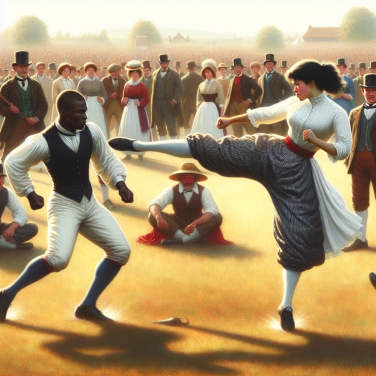Exploring Unique Aspects: The Characteristics That Set Golf Apart from Other Sports
Unlike many traditional sports, golf is unique in its variety of play, course structure, scoring system, and mental demand.
One striking feature that sets golf apart from other sports is its sheer variety. Unlike sports like basketball or soccer, where you always play in the same area with the same dimensions, every golf course in the world is distinct and different. Every hole on a golf course has a unique layout which requires a different strategy to play. Golfers have to adjust their gameplay to suit the course, instead of the other way around.
Golf is also a sport that lacks uniformity in its playing field. Unlike soccer or basketball where the field or court has an exact structure, the playing area of a golf course- called the 'links', varies dramatically in structure. Golf courses can feature various types of grass, sand bunkers, water hazards, roughs, out of bounds, and weather conditions which challenge a golfer’s skills and ability.
The scoring system in golf is also a notable difference from most sports. In most sports, the goal is to accumulate the most points or goals to win. However, golf adopts an inverse approach where the objective is to finish the game with the fewest number of strokes. Even one stroke can change the tide of the entire game, requiring players to measure their efforts and strategize carefully.
Furthermore, golf heavily depends on a player’s mental strength. Unlike traditional sports, where physical capabilities often spell the difference between victory and defeat, golf requires a lot more mental dexterity. Golfers must have the ability to maintain concentration for long periods, manage their nerves, and display excellent decision-making skills.
The pace of golf is another unique aspect that distinguishes it from other sports. Instead of the fast, energetic pace seen in sports like basketball or football, golf has a slow, measured pace. Players have ample time between each stroke to contemplate their next move, adding a different level of strategy and deliberation typically absent from many other sports.
On an individual level, golf is a sport where players can only rely on themselves. Although it's common for golfers to have caddies or coaches, they are not allowed to affect the outcome directly during play. This is different from other sports where a coach can directly affect the result by making real-time tactical decisions.
Lastly, golf is one of the rare sports that does not have a standard duration.
Analyzing the Differences: How Golf Deviates from Traditional Sports Norms
Most sports involve a high level of intense physical activity, a head-to-head battle between opponents, and a thrilling atmosphere crammed with enthusiastic spectators. Golf, on the other hand, maintains its unique place among the array of sports by deviating from these traditional norms. It could be a contentious claim to cast golf aside from the traditional sports category, but a deeper understanding of the game highlights the dissimilar characteristics.
The first significant deviation golf makes from traditional sports norms lies in its less aggressive physical requirements. Sports like soccer, basketball, or rugby demand high-intensity runs, jumps, tackles and a level of physical prowess that can be likened to a gladiator's grit. In comparison, golf requires a controlled, skillful swing, astounding attention to detail and a calmly constructed strategy. It's this paradigm of "less is more" that marks one of the fundamental differences between golf and more taxing sports.
Golf's scoring system is another primary factor that sets it apart. Unlike most traditional sports where scoring more points signifies victory, in golf, the player with the lowest score wins. This reversal of the usual scoring system is testament to the unique mindset required in golf - where you're primarily competing against the course, rather than other players.
The traditional player versus player model seen in most sports doesn't hold up when it comes to golf. The mental confrontation with oneself is typically much more prevalent. Golfers are left alone with their thoughts for long periods, giving mental strength and inner peace far more significance than in games where confrontation with an opponent is the dominant aspect. The narrative that renders golf distinct from other sports is less about competing with others and more about outdoing oneself.
Golf is also unique in the way it incorporates the environment into the game. Many traditional sports take place indoors or use standardized fields or courts. Golf, conversely, embraces nature. Different golf courses around the world boast their unique terrain, weather conditions and layouts, making every round of golf distinct from the other. The way golf courses themselves present a challenge to the players is another differentiating factor that strays from traditional sports norms.
The format of audience engagement in golf is also radically different. Loud cheering and heated rivalries are replaced by polite clapping and quiet anticipation in golf tournaments. This strikes a stark contrast in the perception of spectatorship as compared to other sports where passionate audience participation plays a pivotal role in the atmosphere of the event.




